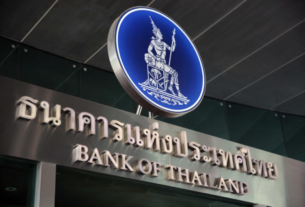The Nigerian government has filed a lawsuit against Binance, accusing the cryptocurrency exchange of causing $81.5 billion in economic losses and tax evasion. Officials claim Binance’s operations contributed to the naira’s instability and allowed traders to bypass financial regulations. This legal action comes as Nigeria tightens its control over digital assets and foreign exchange markets.
“You are seeing Nigeria take a firm stance against unregulated crypto activities,” a government spokesperson said. Authorities argue that Binance’s platform enabled illegal foreign exchange transactions. They claim the company avoided billions in taxes by operating outside regulatory frameworks.
Nigeria’s economy has struggled with currency fluctuations and inflation. Many traders use cryptocurrency to protect their wealth from the naira’s decline. Officials believe Binance’s role in these transactions has worsened the situation.
The lawsuit follows months of warnings from Nigerian regulators. The government has cracked down on crypto exchanges, accusing them of fueling speculation against the naira. Binance has yet to issue a formal response to the lawsuit.
Officials say Binance allowed users to trade cryptocurrency without proper oversight. The platform’s peer-to-peer (P2P) system enabled traders to set exchange rates independently. Authorities believe this system disrupted the country’s official currency markets.
Crypto adoption has surged in Nigeria, with millions using digital assets for remittances and payments. Many people turn to cryptocurrency due to limited access to traditional banking. Regulators argue that some platforms operate in ways that harm the national economy.
Nigeria has previously restricted access to cryptocurrency exchanges. The central bank banned banks from processing crypto transactions in 2021. This lawsuit signals a more aggressive legal approach against platforms like Binance.
Some experts believe this legal action could affect Binance’s global operations. The exchange has faced regulatory challenges in multiple countries. A ruling against Binance in Nigeria might influence other governments to take similar steps.
The Nigerian government is also seeking unpaid taxes from Binance. Authorities claim the company failed to register with tax agencies and did not report its earnings. They are demanding full payment of back taxes along with penalties.
Many crypto users in Nigeria are closely watching the case. Some fear stricter regulations could limit their ability to trade digital assets. Others support the government’s efforts to stabilize the economy.
Nigeria’s financial sector has faced increased pressure due to dollar shortages. The government accuses crypto platforms of worsening the issue by facilitating illegal currency trading. Some officials say stronger enforcement is needed to protect the naira.
The lawsuit could impact Binance’s presence in Nigeria. If found guilty, the exchange may be forced to halt operations or pay significant fines. Some traders are already looking for alternative platforms.
Binance has faced legal challenges in multiple countries. U.S. regulators fined the company $4.3 billion for violating anti-money laundering laws. This case in Nigeria adds to the company’s ongoing legal battles.
Some analysts believe Nigeria’s lawsuit reflects a broader trend. Governments worldwide are increasing scrutiny of crypto exchanges. You may see more legal actions against platforms accused of disrupting financial systems.
Crypto advocates argue that digital assets provide financial freedom. Many Nigerians rely on cryptocurrency due to banking restrictions and high inflation. Some say banning or restricting exchanges will hurt ordinary users.
Government officials insist that regulation is necessary. They argue that unchecked crypto trading threatens economic stability. Authorities say they are not banning crypto but enforcing fair financial practices.
The Nigerian lawsuit will likely take months to resolve. Legal experts predict a complex battle over financial regulations and digital asset policies. The outcome could set a precedent for future crypto regulations in Africa.
Nigeria remains one of the largest crypto markets globally. Many companies monitor the government’s actions for signs of broader regulatory changes. Businesses operating in Nigeria’s digital finance sector may face new restrictions.
The lawsuit highlights ongoing tensions between governments and cryptocurrency platforms. Regulators seek to maintain economic control, while crypto advocates push for decentralization. This case could influence global debates on digital asset regulation.
Authorities say they will continue monitoring crypto activity. Additional lawsuits or regulatory actions may follow. The future of cryptocurrency in Nigeria remains uncertain as the case unfolds.




